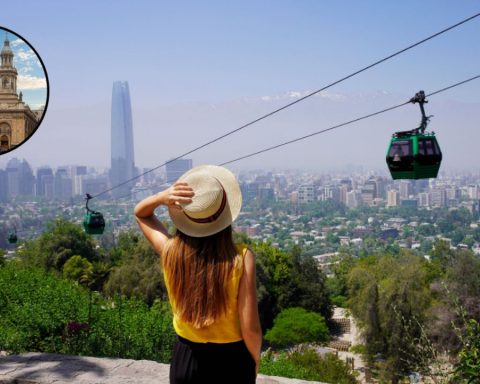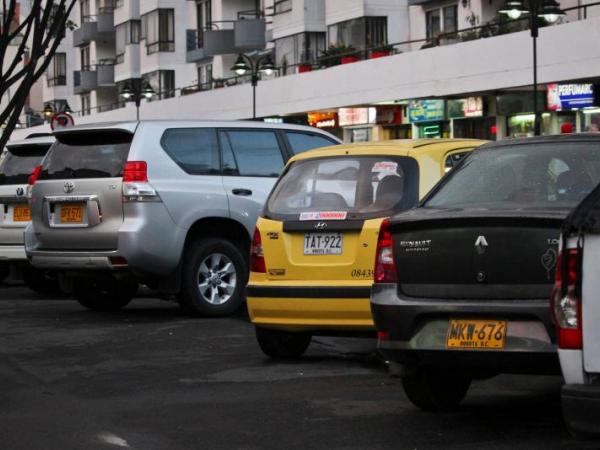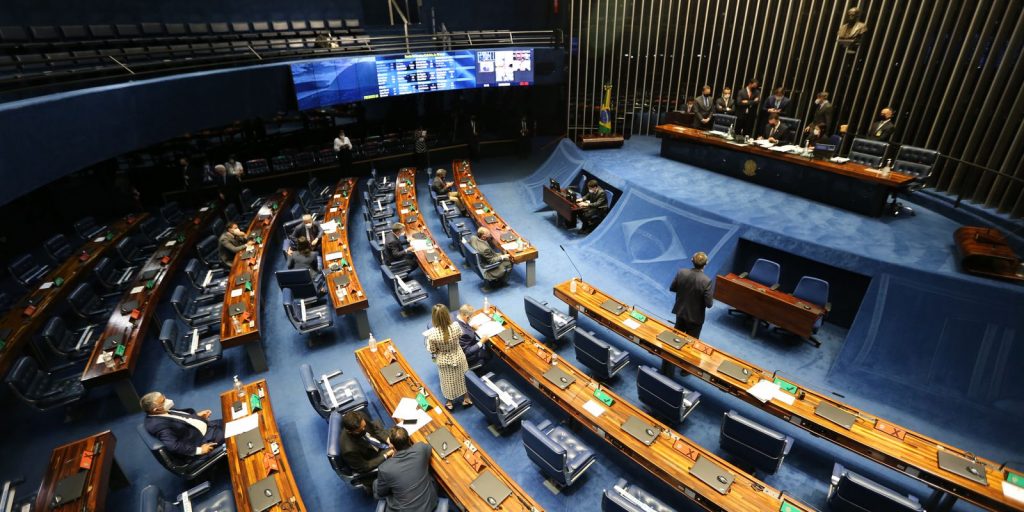
Nobody disputes the order in the Communist Party (CP). They have publicly shown a constant alignment on different issues, and that is why the unchecking made by PC militants on Twitter was surprising, after a statement signed by the party in which the elections in Nicaragua were legitimized. It was the first time that the PC publicly debated its differences, which could take place, in private, in the next Central Committee, to be held after the elections.
The fact is that this statement generated annoyance in the community, both in form and in substance. The opportunity, that is, that it was held just before the elections, mainly pushed this discussion to be made public, so as not to affect the candidacy of Gabriel Boric, to whom several accounts have been passed for the support of his ally, the PC, to countries such as Venezuela and Cuba, pointing out that this store is “the backpack” that the candidate of Approve Dignity carries. But also because of a generational difference that exists, and that they admit within the Communist Party, regarding the relationship with Sandinismo, that they do not personally have younger militants, who came out with everything to distance themselves.
This Tuesday, the communist deputy Camila Vallejo, in an interview with T13 Radior, he insisted that the statement “was not debated or ratified by the party” and that, therefore, “it does not represent the collective.” The parliamentarian added that they should review how that declaration originated in Nicaragua. “We have to clarify this situation in the corresponding collective instances,” he said, regarding the document that would have been endorsed by Juan Andrés Lagos and Claudio de Negri, according to some in the community, where they also point out that the president, Guillermo Teillier, did not he had knowledge of the document.
Already on Friday, the constituent Bárbara Sepúlveda not only criticized the form of this non-consensual statement, but also debated the merits, which shed more light on the fact that, in addition to the opportunity and being inconsistent, there are deeper differences in relation to the topic. “The declaration on Nicaragua was not the product of the discussion of the PC collective and it does not represent me either. Feminists know of the political persecution of Ortega against our colleagues. What happened in Nicaragua is unacceptable and indefensible, “he tweeted.
“Obviously there are differences within the party, as in any community. The point is that we have always debated them behind closed doors, not from the window to the outside ”. This was what a PC leader said, who added that so far these differences have not been taken to partisan deliberative spaces. He also stressed that there has been some annoyance in sectors of the grassroots militancy due to the public dialogue that took place between leaders, which – they say – goes against the party’s policy, due to the departure from this “order” characteristic of the CP.
In any case, there is a coincidence that since last year there have been obvious signs of some changes, but also of an important generational opposition, where new leaderships were taking a greater role, as is the case of the deputies Camila Vallejo and Karol Cariola in Congress, by Bárbara Sepúlveda and Valentina Miranda in the Constitutional Convention, and Irací Hassler in the Municipality of Santiago, which can be read as a better arrival to the public of new faces –mainly women– over the best known and who can be attributed to a certain “renewal”, although the historical leaders remain in the first line.
Despite this public difference by Nicaragua, the majority agree that it is not enough for a break, but that it could open a process of internal debate regarding how these issues are addressed, always tense for the PC.
In fact, the president of the Communist Party, Guillermo Teillier, told The counter that the international issue was discussed a lot in the last Congress of the community –which was held last year– and that in the discussion there are always differences, majority and minority positions. “It was noted now that there are some differences and those will be discussed internally once the electoral process is over, because we are not going to waste time on that right now,” he said.
“I do not see that in the game there are signs of division, it was a thing of the moment, responses of the moment, in situations that are complex. We are in a changing world and we must do the analysis at all times,” emphasized Teillier, who avoided give details of what happened and who is involved. “That is already an internal matter of the party, it will undoubtedly be discussed,” he said.
In his opinion, yes, this impasse It has nothing to do with the generational issue, because it says that within the Communist Party there is a permanent generational renewal.
However, the analysis that some militants and leaders carry out does affect, and they assure that there are two dimensions: one generational, and the other of the timeliness of this statement on Nicaragua. At the generational level, a leader stated that “the younger generations are not contextualized in the Sandinista struggles”, but –he added– also “there is a party that did not like the statement very much due to the sense of opportunity in the election” , ad portas of the first round and with the effects that it could have for the presidential candidacy of Gabriel Boric.
The same source affirmed that it is an issue that generates contradictions, since “there is no positive evaluation of the Nicaraguan Government, but it does not want to go beyond the self-determination of the peoples.” In the community they affirm that this issue has not been addressed in the internal spaces of debate, nor that of Venezuela, despite the fact that leaders have already marked its nuances, and that is why they believe that it is an issue that could be discussed in the next party instances.
Camilo Sánchez, former president of the Communist Youth, reinforced that point and argued that “all generations of the CP, including the JJCC, are deeply anti-imperialist and, therefore, base their approaches within the framework of respect for non-interference and self-determination of the peoples. The expressions of differences that we have seen do not challenge or question the character of all our militancy ”.
In his opinion, what happens in the case of Nicaragua and others has to do with “raising the standard” at other times. “It should not be forgotten that many combatants collaborating with the Sandinista National Liberation Front were Chilean and Chilean communist militants. It is not less than for the CP the issue of Nicaragua is so present, which does not mean that the standard of understanding of what the revolution contributes today has to be the same. We cannot accept that there are delays in aspects that are not the responsibility of imperialism, such as women’s rights, dissidents or sexual diversities. For us that is part of the standard of what anti-imperialism has to do at the moment, ”he remarked.
The lights of the changes and the electoral context
In 2016, the PC had a historic change: it was determined to modify the internal election system, from an indirect one to one of “one militant, one vote” to form the Central Committee. It was a change that the community had resisted in previous years, but that it defined and applied, for example, in the election at the end of last year, although maintaining that it is the Central Committee that elects the board, where the Teillier-duo remained. Carmona.
This process was preceded a few years earlier by the arrival of young faces in Congress, such as Camila Vallejo and Karol Cariola. A feminist process also advanced within the community, which was specified in the principle of parity in the Political Commission, and a “class feminist party” was declared last year.
Political analyst Andrés Cabrera reinforced this point, recalling that both Vallejo and Mayor Daniel Jadue obtained good votes to be part of the organization of the community, despite the fact that Guillermo Teillier continued to lead. “That shows a certain renewal in the leadership, and I believe that this was exacerbated in the good vote that the PC obtained on May 15 and 16, but above all it is expressed – paradoxically – in the victory of Gabriel Boric, that It allows the Vallejo and Cariola sectors to take a position that is very close to Boric’s command, and in an eventual government they will play a fundamental role, ”he said. He added that it will be this “golden generation” that will lead the game in the decisive moments.
Cabrera added that “this generational cut does not identify them so much with the emblematic processes of the Latin American left that took place in the second part of the 20th century, especially the Cuban revolution and the Sandinista process in Nicaragua, and hence the link they have with the world. guerrilla is breaking with this generation of leadership ”.
However, there are those who see that these differences are not enough to make a change in driving, at least not in the short term. Within the community they even say that the debate that may take place on Nicaragua, Venezuela or Cuba – which has not happened formally until now – could be long-term and communicated to the public only when there is a party agreement.
The director of the School of Government and Communications of the Central University, Marco Moreno, considered that it is “a crisis contained within the PC”, and that “although it is true that there are dissident voices, for now we do not observe a weakening of the leadership of the Communist Party ”. He added that these voices, which have been critical of the CP doctrine on some issues, “have not been enough to change the party’s political line.” In his opinion, there is a renovation that has a public position, but does not have control in the community.
Meanwhile, the analyst Mauricio Morales, an academic from the University of Talca, marked nuances. “I do not see it as a generational clash or as a change in the historical position of the CP, but only as a strategic maneuver to support the position of its presidential candidate,” he said, adding that in the short term he does not see that these voices dissidents have stronger internal opposition. “In a possible Boric government, this issue will end up fracturing his coalition early. For Boric, the PC is a time bomb ”, he declared.
A sample of how the pulse is in the Communist Party could be what happens this Sunday in the Metropolitan Region, where Guillermo Teillier and Claudia Pascual compete as candidates for senators from the same store, which could show whether or not there is progress towards a renewal of leadership and leadership. In the community and among analysts they agree that, in any case, any change in the national leadership, in the “party apparatus”, will be progressive and not in the short term.















